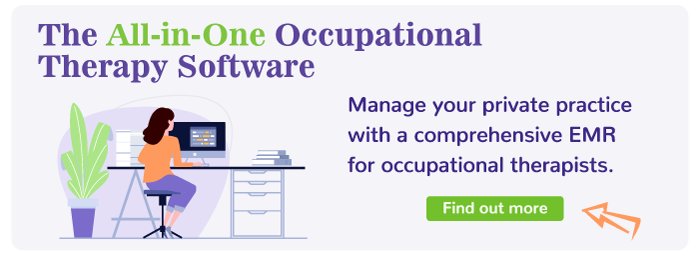MoCA

The Montreal Cognitive Assessment (MoCA) is an assessment tool designed to rapidly detect mild cognitive impairments. The MoCA has been used in academic and non-academic research and widely adopted in clinical settings around the world, and is often utilized by therapists, nurses, researchers, and primary care physicians.
The Montreal Cognitive Assessment is sensitive to identify mild cognitive impairments and early signs of neurodegenerative diseases including:
- Alzheimer’s disease
- Parkinson’s disease
- Huntington’s disease
- Brain tumors
- Systemic lupus erythematosus
- Substance use disorders
- Cerebrovascular disease
- Idiopathic rapid eye movement
- Sleep behavior disorder
- Obstructive
- Sleep apnea
- Fall risk
- Rehabilitation outcome
- Epilepsy
- Chronic Obstructive Pulmonary Disease
- Human Immunodeficiency Virus Infection
Not only is it sensitive to many different diagnoses, it is also adaptable to different languages, used internationally, and can be adapted to the pediatric population.
Additionally, therapists play a pivotal role in the administration process, interpretation of results, educating patients and caregivers on implications of results, collaborating with other healthcare professionals, creating a plan of care, providing interventions, and providing appropriate client-centered care.
Subtests, administration and scoring of the Montreal Cognitive Assessment
Administering the Montreal Cognitive Assessment involves following a standardized protocol. For the therapist, it is important to familiarize yourself with the test before administering it.
Therapists may undergo special training and certification to become familiar with adequately administering and scoring the assessment. Each subtest of the MoCA has specific instructions on the form that need to be followed. The different cognitive domains include attention and concentration, executive functions, memory, language, visuoconstructional skills, conceptual thinking, calculations, and orientation.
It takes about 10 minutes to administer the MoCA. The maximum points for each subtest are included below in each subtest category.
Scoring:
- Total possible score: 30 points
- Normal cognition: 26+ points
- Mild cognitive impairment: 18-25 points
- Moderate cognitive impairment: 10-17 points
- Severe cognitive impairment: <10 points
- One point is awarded for each correct answer in each subtest.
- Add one point for an individual who has 12 years or fewer of formal education
Domain | Description | Points |
|---|---|---|
Visual-Spatial/Executive Functioning | The ability to perceive spatial information. The tasks in this subtest include drawing a clock or connecting dots in a specific order. | 5 |
Naming | Evaluates language and memory. Tasks include the ability to name objects or animals. | 3 |
Attention | Involves tasks that assess sustained attention including items such as repeating numbers, repeating numbers in backward order, and serial subtraction by 7. | 6 |
Language | Assesses language abilities with tasks such as repeating sentences and verbal fluency. | 3 |
Abstraction | Assesses abstract thinking and includes tasks that ask to explain the commonality in a pair of words given. | 2 |
Delayed Recall | Recalling back the words provided earlier in the assessment. | 5 |
Orientation | Orientation refers to the individual’s ability to orient self and be aware of time and place. | 6 |
Challenges and limitations of the Montreal Cognitive Assessment
The Montreal Cognitive Assessment is a quick screening tool that therapists often utilize in healthcare practice to detect mild cognitive impairments. As with many different assessments, the Montreal Cognitive Assessment comes with some challenges and limitations. For example, the Montreal Cognitive Assessment is limited to an individual’s education, language abilities, time constraints, and it is not a comprehensive assessment of cognitive decline or impairments.
Future of Montreal Cognitive Assessment
Cognitive health is a field that has ongoing research and technological developments. Currently, the Montreal Cognitive Assessment can be used with paper and pen and as a digital mobile application.
Further research and technology in cognitive impairments can be focused on biomarkers for cognitive decline, wearable technology, and incorporating cognitive assessments with telehealth.
Overall, the Montreal Cognitive Assessment is a vital assessment tool in the early identification of cognitive decline. It encompasses cognitive domains that are highly valuable and provide insight on an individual’s cognitive health. It is imperative that therapists stay informed via professional development opportunities, cultivate cultural competence via diversity training and mentorship, and actively contribute to the evolving landscape of cognitive assessment in diverse therapeutic settings.
By staying informed and continuously learning, therapists can provide and ensure relevant and up-to-date assessment, interventions, and client-centered care.
Start 30-day Free Trial and explore TheraPlatform. HIPAA Compliant Video and Practice Management Software for Therapists.
References
- Andrew Rosenzweig, M. (2023, August 17). Montreal Cognitive Assessment (MOCA) test for Dementia. Verywell Health. https://www.verywellhealth.com/alzheimers-and-montreal-cognitive-assessment-moca-98617#:~:text=Scoring%20the%20MoCA%20Test&text=Because%20a%20person%E2%80%99s%20education%20can,or%20less%20of%20formal%20education
- Julayanont, P., Nasreddine, Z.S. (2017). Montreal Cognitive Assessment (MoCA): Concept and Clinical Review. In: Larner, A.J. (eds) Cognitive Screening Instruments. Springer, Cham. https://doi.org/10.1007/978-3-319-44775-9_7
- MOCA test. MoCA Cognition. https://mocacognition.com/the-moca-test/#:~:text=MoCA%20has%20been%20subsequently%20adopted,Short%20term%20memory
- Montreal Cognitive Assessment (MOCA) administration. https://www.smchealth.org/sites/main/files/file-attachments/moca-instructions-english_2010.pdf
Resources
TheraPlatform, an all-in-one EHR, practice management and teletherapy tool was built for therapists to help them save time on admin tasks. Sign up for a free, 30-day trial with no credit card required. Cancel anytime.
More resources
- Therapy resources and worksheets
- Therapy private practice courses
- Ultimate teletherapy ebook
- The Ultimate Insurance Billing Guide for Therapists
- The Ultimate Guide to Starting a Private Therapy Practice




